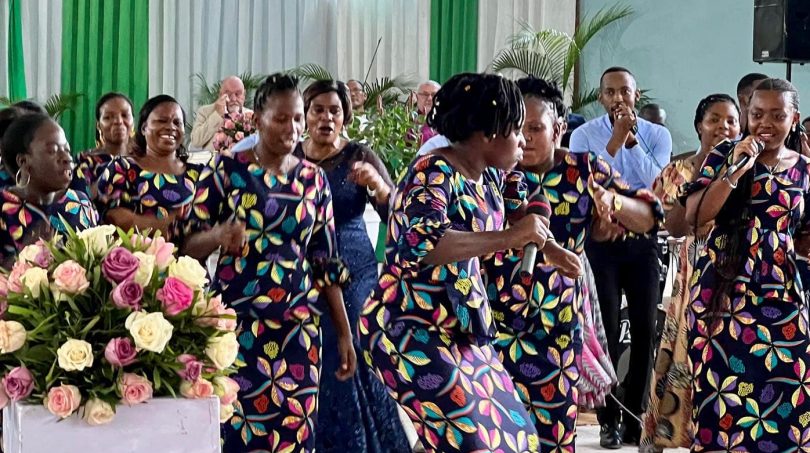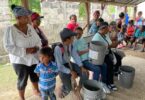Moravian Worship in Tanzania
Living Examples of Love
by Bishop Chris Giesler
Preaching Text: Luke 17:5-10
On this World Communion Sunday, we take a moment to reflect on the global nature of God’s love, mercy, grace, and peace. God has never named any corner of the world as the headquarters. We are all children of God seeking to follow Christ faithfully. And as we gather at the Lord’s table today, we do so mindful that the words of institution today are being spoken in hundreds of languages and heard by billions of people. And as those who partake walk out of their sanctuaries and into their community, we hope and pray that they will be living examples of God’s love and sharing words of grace.
As our Gospel lesson begins today, we hear a plea from Jesus’ disciples, “Increase our faith!” It seems as if they don’t feel up to the task of discipleship. They feel as if they lack the faith to do what Jesus is asking of them, so they want more. For me, this begs the question, “how does one quantify faith?” Is there a certain amount needed for a day’s work? Does feeding the poor take more faith than forgiving a sin? It is impossible to tell. But why do these disciples feel like they need more? Perhaps the answer to that comes in the first four verses of Luke’s 17th chapter, which are not part of the assigned reading, but I would encourage the preacher to use them.
Here Jesus says: “Occasions for stumbling are bound to come, but woe to anyone by whom they come! 2It would be better for you if a millstone were hung around your neck and you were thrown into the sea than for you to cause one of these little ones to stumble. 3Be on your guard! If another disciple sins, you must rebuke the offender, and if there is repentance, you must forgive. 4And if the same person sins against you seven times a day, and turns back to you seven times and says, ‘I repent,’ you must forgive.”
Living these words of Jesus is not easy. Most of us do not want to give up our freedom to do the things we enjoy, even if they might cause others to stumble. But this is precisely what Jesus is asking of those who follow him. Our liberty must always be held in check if our behavior causes someone else to stumble. I might be able to enjoy an adult beverage without overindulging or without risking getting behind the wheel of a car. But to someone struggling with alcoholism, my freedom to consume might just cause them to stumble.
And if holding ourselves up as an example to others is not enough, Jesus next talks about how his followers must deal with those in the community who sin. First, with love and compassion, we must name the sin and confront the wrong. Then, when there is a repentance, a turning around, a step towards restoration, we must forgive. This is perhaps most difficult when we are the ones who have been hurt by the sin, even if this is a repeat offender.
It is no wonder that Jesus’ disciples cry, “Increase my faith.” Living in a manner that keeps others from stumbling and forgiving others (even seven times a day) requires a lot of faith.
But think for a moment how much better our world would be if each of us took these words to heart. If each person participating in the Lord’s Supper lived in such a way as to be a light in the world, how much better would the world be? If each person taking the bread and drinking the cup today would seek reconciliation by sharing words of forgiveness, how might the world be transformed?
In verses 7-10 of this passage, Jesus tells us that living as an example and extending forgiveness are part of the basic job description of being a Christian. These are not duties that are assigned to some but not others. We must be willing to live as a positive example to others and offer words of grace.
On this World Communion Day, how do each of us look at the world? Whom do we welcome? How do we live? How do we forgive? Whom do we bless? Collectively, as Christians worldwide, we can change things for the better.
On world communion Sunday, may we look at these elements of bread and cup in a new way. May we hold in our hearts the humble truth that every soul on this earth deserves to know that there is a God of infinite love who cares for them. That there is a God who welcomes the most vulnerable among us. There is a God whose grace is unconditional. There is a community of faith willing to help feed, clothe, heal, and love those at the margins.







